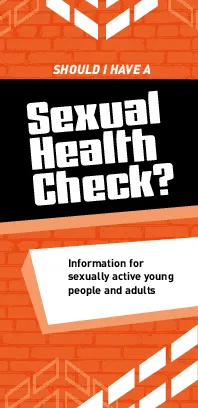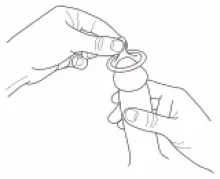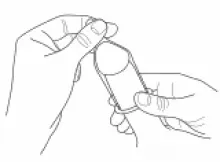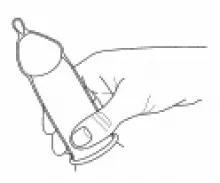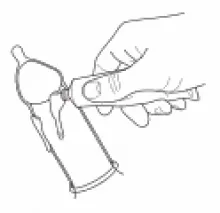Should I have a sexual health check?
Information for sexually active young people and adults
Why have a sexual health check?
Sexual health checks are the only way to confirm if you have a sexually transmitted infection (STI).
STIs are infections that are spread through sexual contact. This includes having skin contact with an infected person's genital skin (vagina, penis or testicles) or anus or having vaginal, anal or oral sex.
STIs are very common, and anyone can get them. For more information about STIs, see .
Should I get checked?
If you answer yes to any of the following sexual health questions, you may be at risk of having an STI and should consider having a sexual health check. If you are unsure about whether you need a check, talk to your doctor or nurse or the staff at your student health, youth or school clinic or Sexual Health Services or Family Planning clinic.
Sexual history questions
- Are you sexually active?
- Do you have a new sexual partner?
- Do you have more than one sexual partner?
- Have you had any same-sex contact?
- Do you or your partner(s) ever have sex without a condom?
- Have you noticed any unusual symptoms in your genital area, your anus or your mouth? This may include burning, tingling, ulcers, sores or unusual discharge.
- Have you ever had an STI?
Where can I get checked?
You can get checked at:
- your doctor's clinic
- some student health clinics (for students only)
- youth health clinics
- Sexual Health Services clinics
- Family Planning clinics.
Checks may be free for some people. You can ask about this before you make your appointment.
What happens at the check?
You can bring a support person with you to the check. The doctor or nurse will talk to you about the check and answer any questions. They will ask about your sexual history to find out:
- if you are at risk of having an STI
- if it's the right time to have an STI test
- if your partner(s) are at risk and whether they need testing or treating.
Depending on your sexual history, the doctor or nurse may recommend an STI test.
STI tests
Your STI test may include some or all of the following.
Visual exam
If you have STI symptoms, the doctor or nurse will look at the affected area. They may be able to see the infection and offer medicine to treat it. They may also recommend a blood test or a swab test.
Blood test
The doctor or nurse will either take a small amount of blood from your arm or give you a form to take to a laboratory collection centre. The blood will be sent to a laboratory for testing to see if you have an STI.
Swab test
If you have any discharge, or sores or ulcers, the doctor or nurse will gently press a swab (which looks like a large cotton bud) against them. This is sent to a laboratory for testing.
Urine test
You'll be asked to pee (urinate) into a small container. This is sent to a laboratory for testing.
Internal examination (for women only)
The doctor or nurse may need to look inside your vagina for signs of an infection. They may also take a swab from inside your vagina so it can be tested for an STI. If you prefer, you can take your own swab. The doctor or nurse will give you a swab and tell you how to take it.
The doctor or nurse will tell you when and how you will get your test results. They will also tell you what to do if your test shows that you have an STI, including treatment options and follow-up appointments.
Protecting yourself and others
Use a condom. Using a condom every time you have sex reduces your risk of getting an STI. Although using a condom will give some protection, STIs can be passed on to any area not covered by a condom. (See the section below for .)
You can get condoms on prescription from your doctor, or you can get them free from Sexual Health Services and Family Planning clinics. You can also buy condoms from pharmacies, supermarkets, pubs, clubs and some dairies.
How to use a condom
To help protect against STIs, cover the penis with the condom before it touches the partner's vagina, mouth or anus. Use a new and lubricated condom each time you have sex.
- Check the expiry date on the condom packet. If this date has passed, throw the condom away and use one that hasn't expired.
- Open the packet carefully. Fingernails, rings and teeth can tear the condom.
- Before the condom comes into contact with the penis, check that the condom is the right way up (figure 1). Do this by pinching the top of the condom and rolling it down a little. It's the right way up if it rolls down easily (figure 2).
- Continue pinching the top of the condom and roll it onto the hard penis, all the way down to the base (figure 3).
- Apply a water-based lubricant (eg, KY Jelly, Wet Stuff, Sylk or Top Gel) to the condom (figure 4). Oil-based lubricants such as Vaseline can damage condoms.
- After ejaculating (cumming) and when withdrawing, prevent semen from being spilt by holding the condom onto the base of the penis. Remove the used condom from the penis and wrap it in tissue or toilet paper. Put it in the rubbish.
1.2. 3. 4.
More information
You can get more information about sexual health checks and STIs from:
- your doctor or nurse
- the public health nurse at your school
- Student Health Services at your university, polytechnic or school
- youth health clinics in your area
- The New Zealand Sexual Health Society -
- Family Planning - for clinics in your area, call (free) 0800 INFOLINE (0800 4636 5463) or visit
- the Just the Facts website at
Read the following leaflets, available from your health provider and the HealthEd website :
Remember
Sexual health checks are the only way to confirm if you have a sexually transmitted infection (STI).
STIs are very common, and anyone can get them. Some STIs are serious, and you and your partner(s) may need treatment. Some STIs can't be cured, but their symptoms can be managed with treatment.
You can get checked at your doctor's clinic, at some student health clinics, at youth health clinics and at Sexual Health Services and Family Planning clinics.
During the check, you'll be asked about your sexual history and you may need an STI test.
If you do have an STI, you may need further tests and treatment. Your partner(s) may also need to be tested and treated.
To help protect against STIs, always use a condom when having sex.
This resource is available from or the authorised provider at your local DHB.
Revised July 2022. Code HE1445.




